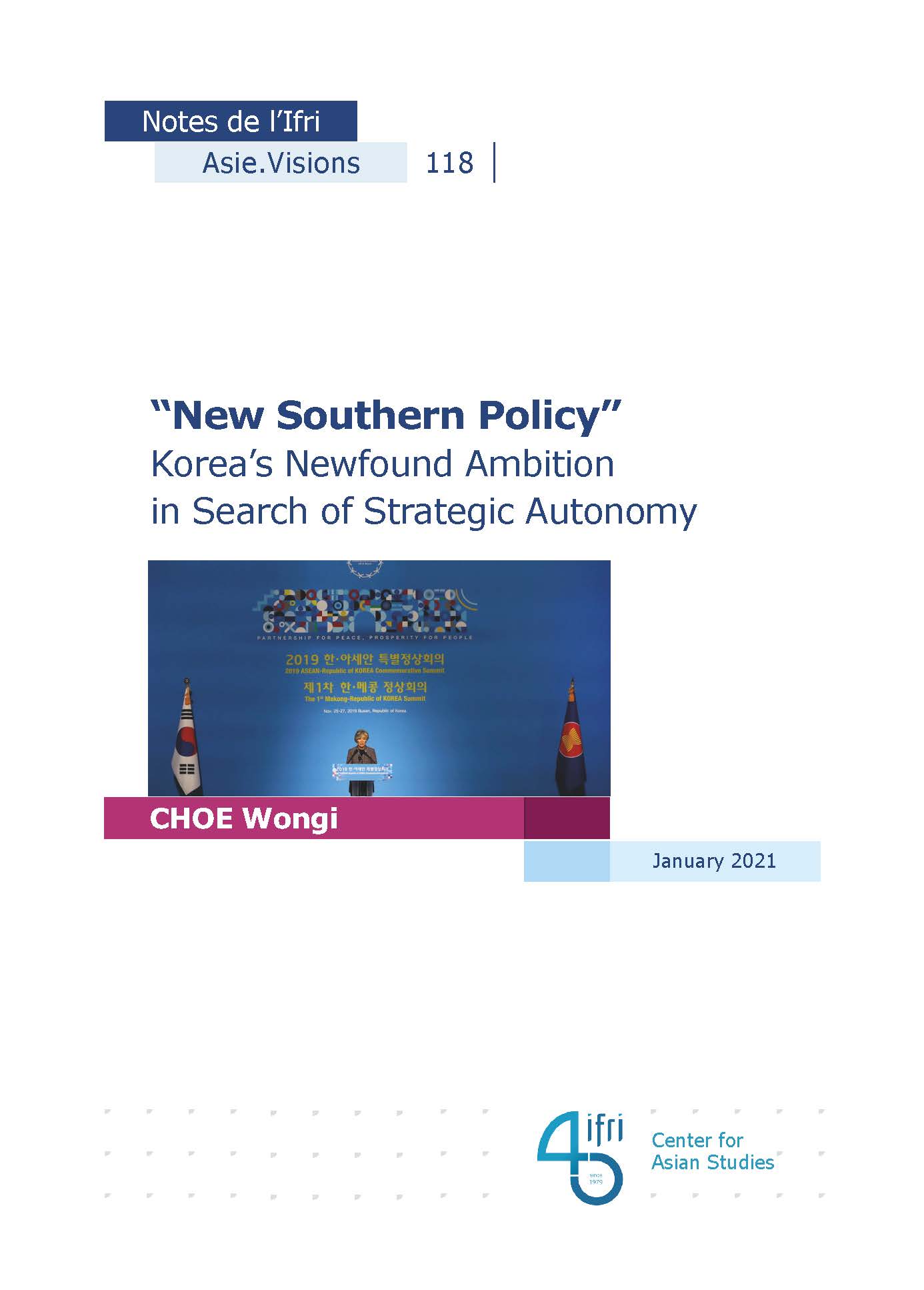“New Southern Policy”, Korea’s Newfound Ambition in Search of Strategic Autonomy

The New Southern Policy (NSP), the signature foreign policy initiative by President Moon Jae-in of the Republic of Korea (ROK) that was officially launched in November 2017, has opened a new chapter in Seoul’s relations with the Association of Southeast Asian Nations (ASEAN) as well as India.
Since then, Seoul has adopted a whole-of-government approach that involved most of the ministries and government agencies in implementing the presidential agenda. The NSP as Seoul’s new regional strategy has been quite well-received by Southeast Asia and India, and successful in producing substantial deliverables over the last three years. To date, NSP remains the most successful and active foreign policy program under the Moon administration.
The NSP represents Seoul’s middle power ambition in search of greater strategic autonomy by taking on greater international responsibilities and roles that are deemed commensurate with its status and capabilities in global society. In this respect, Seoul has been endeavoring to diversify its external economic relations, reorient its diplomatic overtures toward Southeast Asia and beyond, and to promote active regional cooperation. However, Seoul’s middle power ambition has been significantly hampered by external geopolitical constraints as well as internal limitations of the NSP itself.
In an effort to minimize the risks of being drawn into the quagmire of US-China strategic rivalry, Seoul had to design the initiative as a purely functional cooperation agenda by setting aside sensitive strategic issues from the NSP’s “peace pillar”. By contrast, Seoul chose deliberately to prioritize development cooperation as the central domain of its NSP engagement in order to capitalize on its developmental experiences. As a consequence, this imbalance in the design of the NSP is crippling in that issues of regional security and strategic cooperation are largely absent from Seoul’s NSP drive. Also, Seoul’s cooperation with Washington’s Indo-Pacific strategy has been confined to a bilateral basis, and Seoul has engaged US only in those areas that are not politically sensitive such as development cooperation and non-traditional security.
For this reason, contrary to its self-imposed sense of responsibility to take greater regional roles as a robust middle power in the region, the space of Seoul’s expected activism under its ambitious NSP initiative has been effectively limited. Seoul needs to expand the “peace pillar” of its NSP beyond non-traditional security issues and take a more balanced and proactive stance in its engagement in regional strategic and security issues.
Download the full analysis
This page contains only a summary of our work. If you would like to have access to all the information from our research on the subject, you can download the full version in PDF format.
“New Southern Policy”, Korea’s Newfound Ambition in Search of Strategic Autonomy
Related centers and programs
Discover our other research centers and programsFind out more
Discover all our analyses
RAMSES 2024. A World to Be Remade
For its 42nd edition, RAMSES 2024 identifies three major challenges for 2024.

France and the Philippines should anchor their maritime partnership
With shared interests in promoting international law and sustainable development, France and the Philippines should strengthen their maritime cooperation in the Indo-Pacific. Through bilateral agreements, expanded joint exercises and the exchange of best practices, both nations can enhance maritime domain awareness, counter security threats and develop blue economy initiatives. This deeper collaboration would reinforce stability and environmental stewardship across the region.

The China-led AIIB, a geopolitical tool?
The establishment of the Asian Infrastructure Investment Bank (AIIB) in 2016, on a Chinese initiative, constituted an attempt to bridge the gap in infrastructure financing in Asia. However, it was also perceived in the West as a potential vehicle for China’s geostrategic agendas, fueling the suspicion that the institution might compete rather than align with existing multilateral development banks (MDBs) and impose its own standards.
Jammu and Kashmir in the Aftermath of August 2019
The abrogation of Article 370, which granted special status to the state of Jammu and Kashmir (J&K), has been on the agenda of the Bharatiya Janata Party (BJP) for many decades.






